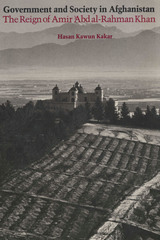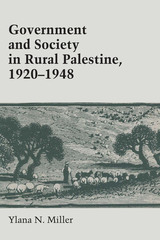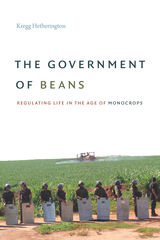21 start with G start with G

Give and Take offers a new history of government in Tokugawa Japan (1600–1868), one that focuses on ordinary subjects: merchants, artisans, villagers, and people at the margins of society such as outcastes and itinerant entertainers. Most of these individuals are now forgotten and do not feature in general histories except as bystanders, protestors, or subjects of exploitation. Yet despite their subordinate status, they actively participated in the Tokugawa polity because the state was built on the principle of reciprocity between privilege-granting rulers and duty-performing status groups. All subjects were part of these local, self-governing associations whose members shared the same occupation. Tokugawa rulers imposed duties on each group and invested them with privileges, ranging from occupational monopolies and tax exemptions to external status markers. Such reciprocal exchanges created permanent ties between rulers and specific groups of subjects that could serve as conduits for future interactions.
This book is the first to explore how high and low people negotiated and collaborated with each other in the context of these relationships. It takes up the case of one domain—Ōno in central Japan—to investigate the interactions between the collective bodies in domain society as they addressed the problem of poverty.

Give and Take offers a new history of government in Tokugawa Japan (1600–1868), one that focuses on ordinary subjects: merchants, artisans, villagers, and people at the margins of society such as outcastes and itinerant entertainers. Most of these individuals are now forgotten and do not feature in general histories except as bystanders, protesters, or subjects of exploitation. Yet despite their subordinate status, they actively participated in the Tokugawa polity because the state was built on the principle of reciprocity between privilege-granting rulers and duty-performing status groups. All subjects were part of these local, self-governing associations whose members shared the same occupation. Tokugawa rulers imposed duties on each group and invested them with privileges, ranging from occupational monopolies and tax exemptions to external status markers. Such reciprocal exchanges created permanent ties between rulers and specific groups of subjects that could serve as conduits for future interactions.
This book is the first to explore how high and low people negotiated and collaborated with each other in the context of these relationships. It takes up the case of one domain—Ōno in central Japan—to investigate the interactions between the collective bodies in domain society as they addressed the problem of poverty.

But as Michael Leo Owens demonstrates in God and Government in the Ghetto, this alliance also serves as a means for black clergy to reaffirm their political leadership and reposition moral authority in black civil society. Drawing on both survey data and fieldwork in New York City, Owens reveals that African American churches can use these newly forged connections with public agencies to influence policy and government responsiveness in a way that reaches beyond traditional electoral or protest politics. The churches and neighborhoods, Owens argues, can see a real benefit from that influence—but it may come at the expense of less involvement at the grassroots.
Anyone with a stake in the changing strategies employed by churches as they fight for social justice will find God and Government in the Ghetto compelling reading.


Most Americans are more aware of the workings of the federal government than of their own state governments. But these “laboratories of democracy” constitute perhaps the most creative components of the American political experiment.
This book serves as a guide for students of government and provides a historical context for understanding the forces at work in the state’s political system. Among the states, Tennessee’s unique blend of legislative and executive powers is, in some respects, far more a product of personality than political ideology. This second edition describes these often colorful leaders and the issues they grappled with, including education, health care, corrections, economic development, and other key factors. A full analysis of government institutions embodied in the legislative, executive, and judicial branches is supplemented by added attention to county government and public administration.
Fully up to date, this edition also provides key chapters on the media, political campaigns, and the rising dominance of the Republican Party in recent decades. In addition, it focuses on how a new generation of politicians—among them, Governor Bill Haslam, House Speaker Beth Harwell, and Knoxville Mayor Madeline Rogero—have emerged to carry on the legacy of state leadership.

This book places Tennessee’s modern political institutions in the context of the history and personalities that formed them. They pay special attention to the period after 1978, when three governors left a lasting impression on the direction and culture of the state government. Separate chapters examine the legislative, executive, and judicial branches, explaining how and why Tennessee’s political culture differs from other states. The book also explores the ways in which education, health care, corrections, and economic development define much of the government agenda. Additional chapters on the media, political campaigns, and local government provide a backdrop that elucidates more fully how the state government functions.
The authors profile many of the personalities who have shaped the state’s political agenda. Among these are longtime Senate Democratic Speaker John Wilder; his close ally, Senate Republican Leader Ben Atchley; House Speaker Jimmy Naifeh, son of a Lebanese immigrant; and Bill Snodgrass, who served as State Comptroller for forty-seven years. The book explains how each of these individuals related to three Tennessee governors, Republicans Lamar Alexander and Don Sundquist and Democrat Ned McWherter, whose administrations presided over the state’s greatest period of growth and prosperity.
Illustrated with photographs and tables, and featuring anecdotal sidebars that illuminate key issues, this book will become the standard text on Tennessee state government and politics for years to come.
The Authors: William Lyons is a professor of political science at the University of Tennessee and coauthor of such books as American Government: Politics and Political Culture.
John M. Scheb II is a professor of political science and director of the Social Science Research Institute at the University of Tennessee and coauthor of American Constitutional Law, among other books. In partnership with Dr. Lyons, he provides campaign consulting for political candidates and applied survey research for businesses and organizations.
Billy Stair is director of communication and community outreach at Oak Ridge National Laboratory. He served for eighteen years in the legislative and executive branches of state government, including eight years as senior policy advisor to the Governor.

There have been many developments within the European Union since the last edition of this volume. In May 2004, the EU increased in size from fifteen to twenty-five member states, and, in so doing, became a pan-European, rather than Western European, organization. The following month, national leaders reached agreement on the contents of the long-discussed and exhaustively negotiated Constitutional Treaty only to see the fruits of their labors rejected in 2005 by voters in France and the Netherlands. These are only the most obvious manifestations of a constantly evolving integration process addressed throughout the book. Every chapter has been extensively revised since the last edition.
The Government and Politics of the European Union also includes reflections on the conceptual and theoretical tools used to analyze the integration process and the EU, as well as on the factors likely to influence the Union’s future development.

There have been many developments within the European Union since the last edition of this volume. In May 2004, the EU increased in size from fifteen to twenty-five member states, and, in so doing, became a pan-European, rather than Western European, organization. The following month, national leaders reached agreement on the contents of the long-discussed and exhaustively negotiated Constitutional Treaty only to see the fruits of their labors rejected in 2005 by voters in France and the Netherlands. These are only the most obvious manifestations of a constantly evolving integration process addressed throughout the book. Every chapter has been extensively revised since the last edition.
The Government and Politics of the European Union also includes reflections on the conceptual and theoretical tools used to analyze the integration process and the EU, as well as on the factors likely to influence the Union’s future development.

This is an authoritative study of the administrative, social, and economic structure of Afghanistan during a decisive stage in its history. The period covered—the reign of the "Iron" Amir Rahman Khan—was in many ways the beginning of modern Afghanistan as a cohesive nation. Although Afghanistan had emerged as an entity in 1747, it was actually under the Amir that its borders were established, its internal unification completed, and the modern concept of nationhood implanted.
Kakar approaches this complex process by taking into consideration both the internal and the external forces that influenced its development. Thus, modernization, centralization, and nationalization are seen as both defensive reactions to European imperialism and necessary preconditions to capital formation and, consequently, industrialization.
The first part of the book covers the government of the Amir, from the personality of the ruler down to the operation of his new bureaucrats at the local level. Here Kakar presents a comprehensive treatment of the Afghan system of taxation and local government. The second part views these economic and social institutions from the perspective of the major segments of the populace—nomads, townsmen, tribes, women, slaves, landowners, mullahs, merchants, and so forth.

In 1947, Arabs made up two-thirds of the population of Palestine, and they owned most of its cultivable land. Why then, did they "lose" their homes and land to a relatively small Jewish community just emerging from the shocks of World War II? Did the Palestinians "lose" their homeland because they were backward, primitive, and reactionary? Or was Israel the product of persistent victimization of Palestinian Arabs by an imperialist power which supported Zionist colonization? Did the Palestinians sell each other out? Or were they helpless sufferers in the face of a sophisticated enemy with endless resources?
Too often discussions of Palestine are couched in such rhetorical language, based on the assumption that either Jews or Arabs are morally to blame for historical realities. This study seeks to go beyond attributions of responsibility to investigate the concrete conditions which determined and limited Palestinian Arab actions between 1920 and 1948. It was during that period, while Great Britain governed the area under a League of Nations mandate, that Palestine both emerged and disappeared as a modern political entity.
Many studies of Palestinian Arab nationalism have looked to Zionism as the primary agent of change in the region. Miller assumes the impact of Jewish settlement but goes beyond these earlier studies to explore the way in which policies of the Palestine government affected the daily lives of villagers—the majority of the population—and their understanding of the changes occurring around them. In this way, what emerges is a detailed analysis of the influence, for good or ill, that government policy had on village community life.
Based largely on archival sources never before used, this work allows the reader to gain a deeper appreciation of the internal life of the rural community, which had previously received relatively little attention. Understanding the experiences of Palestinians before 1948 helps us to comprehend immeasurably better the continuity of movements for Palestinian statehood as well as the continuing tensions and problems on the West Bank today.

The American economy has provided a level of well-being that has consistently ranked at or near the top of the international ladder. A key source of this success has been widespread participation in political and economic processes. In The Government and the American Economy, leading economic historians chronicle the significance of America’s open-access society and the roles played by government in its unrivaled success story.
America’s democratic experiment, the authors show, allowed individuals and interest groups to shape the structure and policies of government, which, in turn, have fostered economic success and innovation by emphasizing private property rights, the rule of law, and protections of individual freedom. In response to new demands for infrastructure, America’s federal structure hastened development by promoting the primacy of states, cities, and national governments. More recently, the economic reach of American government expanded dramatically as the populace accepted stronger limits on its economic freedoms in exchange for the increased security provided by regulation, an expanded welfare state, and a stronger national defense.




By critically exploring Foucault’s claim that Western civilization is a civilization of desire, de Beistegui crafts a provocative and original genealogy of this shift in thinking. He shows how the relationship between identity, desire, and government has been harnessed and transformed in the modern world, shaping our relations with others and ourselves, and establishing desire as an essential driving force for the constitution of a new and better social order. But is it? The Government of Desire argues that this is precisely what a contemporary politics of resistance must seek to overcome. By questioning the supposed universality of a politics based on recognition and the economic satisfaction of desire, de Beistegui raises the crucial question of how we can manage to be less governed today, and explores contemporary forms of counter-conduct.
Drawing on a host of thinkers from philosophy, political theory, and psychoanalysis, and concluding with a call for a sovereign and anarchic form of desire, The Government of Desire is a groundbreaking account of our freedom and unfreedom, of what makes us both governed and ungovernable.

In A Government of Laws, which includes a new preface, Ellis Sandoz re-evaluates the traditional understanding of the philosophic and intellectual background of the American founding. Through an exhaustive assessment of Renaissance, medieval, and ancient political philosophy, he shows that the founding fathers were consciously and explicitly seeking to create a political order that would meet the demands of human nature and society. This rigorous and searching analysis of the sources of political and constitutional theory generates an original and provocative approach to American thought and experience.




Government of the Shadows analyses the concept of clandestine government. It explores how covert political activity and transnational organised crime are linked -- and how they ultimately work to the advantage of state and corporate power.
The book shows that legitimate government is now routinely accompanied by extra-governmental covert operations. Using a variety of case studies, from the mafia in Italy to programmes for food and reconstruction in Iraq, the contributors illustrate that para-political structures are not 'deviant', but central to the operation of global governments.
The creation of this truly parallel world-economy, the source of huge political and economic potential, entices states to undertake new forms of regulation, either through their own intelligence agencies, or through the more shadowy world of criminal cartels.

Of all the major cities of Britain, London, the world metropolis, was the last to acquire a modern municipal government. Its antiquated administrative system led to repeated crises as the population doubled within a few decades and reached more than two million in the 1840s. Essential services such as sanitation, water supply, street paving and lighting, relief of the poor, and maintenance of the peace were managed by the vestries of ninety-odd parishes or precincts plus divers ad hoc authorities or commissions. In 1855, with the establishment of the Metropolitan Board of Works, the groundwork began to be laid for a rational municipal government.
David Owen tells in absorbing detail the story of the operations of the Metropolitan Board of Works, its political and other problems, and its limited but significant accomplishments—including the laying down of 83 miles of sewers and the building of the Thames Embankments—before it was replaced in 1889 by the London County Council. His account, based on extensive archival research, is balanced, judicious, lucid, often witty, and always urbane.
READERS
Browse our collection.
PUBLISHERS
See BiblioVault's publisher services.
STUDENT SERVICES
Files for college accessibility offices.
UChicago Accessibility Resources
home | accessibility | search | about | contact us
BiblioVault ® 2001 - 2024
The University of Chicago Press









